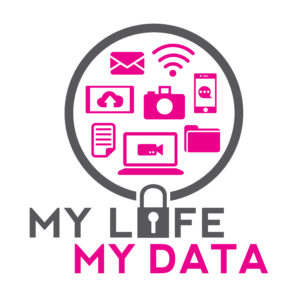 This week the House Civil Law and Data Practices Committee heard and passed a bill that would allow Minnesotans to vote on adopting a constitutional amendment to protect their data privacy. If voters approve the #MyLifeMyData amendment in 2016, private electronic data such as text messages, photos, and emails will be protected from unconstitutional search and seizure, just like other personal effects are currently protected from warrantless searches.
This week the House Civil Law and Data Practices Committee heard and passed a bill that would allow Minnesotans to vote on adopting a constitutional amendment to protect their data privacy. If voters approve the #MyLifeMyData amendment in 2016, private electronic data such as text messages, photos, and emails will be protected from unconstitutional search and seizure, just like other personal effects are currently protected from warrantless searches.
The current language in the Minnesota constitution guarantees “The right of the people to be secure in their persons, houses, papers and effects against unreasonable searches and seizures.” If adopted, the constitutional amendment would add “electronic communications and data” to that sentence.
In an interview with Fox 9 News, bill author Senator Branden Petersen explained his motivation for amending the state constitution to guarantee data privacy: “In the existing Fourth Amendment, you have the right [to be protected] from unreasonable searches and seizures of your effects in your home, but it doesn’t say what ‘effects’ means in all its iterations.” Petersen added, “If the founders were here today, of course electronic data would be protected, because it tells every intimate detail of your life.
Other states have already taken steps to protect electronic data. Missouri’s constitutional amendment received 75% public support in 2014!
Rep. Peggy Scott, the chief author in the House, told the Star Tribune, “I believe this bill and amendment are needed to at the very least protect the private communication and data that we all have on our electronic devices. Think of conversations you’ve had online or texting. How many of us have income or other sensitive information on our computers? Banking information, budget information detailing where we have shopped, what charities we give to or what doctor appointments we go to?”
With solid bipartisan support in the Minnesota legislature and backing from liberty-focused groups and the American Civil Liberties Union (ACLU), it’s hard to imagine why anyone would be against protecting data privacy. Unfortunately, the bill already has an uphill battle in the Minnesota Senate as Democrat Ron Latz, Chair of the Judiciary Committee, has said his committee won’t hear the bill.

1. Email Senator Ron Latz
The Chair of the Judiciary Committee says there’s not enough time to consider the #MyLifeMyData bill. Tell Senator Latz, “nothing is more important than our privacy rights!”
2. Sign the petition
Add your name to the petition on Change.org demanding the #MyLifeMyData bill be heard in the Senate Judiciary Committee.
3. Share on social media
Share this post with friends to build momentum around the data privacy movement. On Twitter, use the hashtag #MyLifeMyData.
[feather_share size=”24″]
4. Write a letter to the editor
Submit a letter to your local paper. Tell them:
-
Privacy laws need to be changed to apply to 21st century technologies.
-
The #MyLifeMyData bill has broad public and bipartisan support in Minnesota.
-
Other states ensure their citizens’ data privacy. It’s time we do the same!
